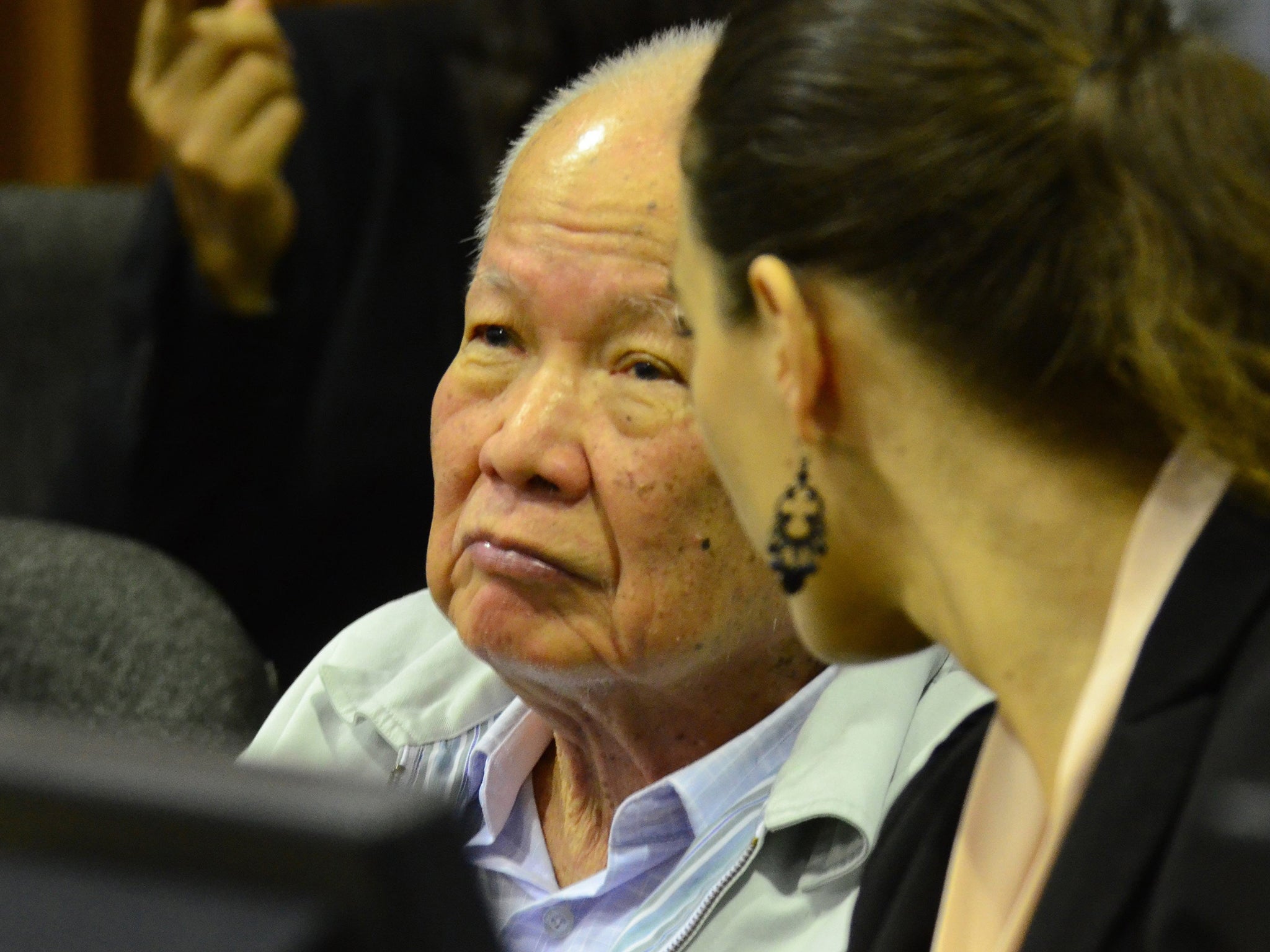First genocide trial against leaders of Khmer Rouge opens in Cambodia
Defendants have threatened to boycott further proceedings

Your support helps us to tell the story
From reproductive rights to climate change to Big Tech, The Independent is on the ground when the story is developing. Whether it's investigating the financials of Elon Musk's pro-Trump PAC or producing our latest documentary, 'The A Word', which shines a light on the American women fighting for reproductive rights, we know how important it is to parse out the facts from the messaging.
At such a critical moment in US history, we need reporters on the ground. Your donation allows us to keep sending journalists to speak to both sides of the story.
The Independent is trusted by Americans across the entire political spectrum. And unlike many other quality news outlets, we choose not to lock Americans out of our reporting and analysis with paywalls. We believe quality journalism should be available to everyone, paid for by those who can afford it.
Your support makes all the difference.The first trial weighing charges of genocide against Cambodia’s brutal 1970s Khmer Rouge regime opened yesterday with a prosecutor saying it will show that Cambodians were enslaved in inhumane conditions that led to the deaths of 1.7 million people from starvation, disease and execution.
Khieu Samphan, the regime’s head of state, and Nuon Chea, right-hand man to the communist group’s late leader, Pol Pot, already received life sentences in August after being found guilty of crimes against humanity, relating mostly to forced movement of millions to the countryside when the Khmer Rouge took power in 1975.
They have appealed their convictions, and in brief statements to the court on Friday called for postponing further trial sessions. Nuon Chea said the court should wait for a ruling on his plea that four judges should be dismissed for alleged bias, and Khieu Samphan said it was unfair to proceed while his defence team was still working on appealing the verdict in his first trial. They threatened to boycott further proceedings.
The UN-backed tribunal split the cases into two trials for fear that Khieu Samphan, 83, and Nuon Chea, 88, could die before any proceedings against them could be completed. In addition to genocide, the second trial will address for the first time accusations of rape and forced marriages.
It will show that Cambodians at the giant co-operatives and work sites established by the Khmer Rouge were “enslaved and subjected to inhumane conditions that led to countless deaths from starvation, overwork and disease”, Cambodian prosecutor Chea Leang told the court.
“We are here because of millions of Cambodian people who did not survive in this regime, for whom three years, eight months and 20 days ... meant only suffering and grief, pain and deaths,” she said.
According to the genocide charges, Pol Pot and other senior leaders intended to wipe out members of the country’s Muslim Cham and Vietnamese ethnic minorities. Estimates of the number of Chams killed range from 90,000 to 500,000. Hundreds of thousands of ethnic Vietnamese were forced into Vietnam, and most of those remaining were executed. Vann Math, head of the Cambodia Islamic Association, said that the Khmer Rouge fiercely persecuted the Cham.
After years of legal and political wrangling, the Khmer Rouge tribunal was established in 2006, but has been plagued by corruption, mismanagement and financial woes.
AP
Join our commenting forum
Join thought-provoking conversations, follow other Independent readers and see their replies
Comments